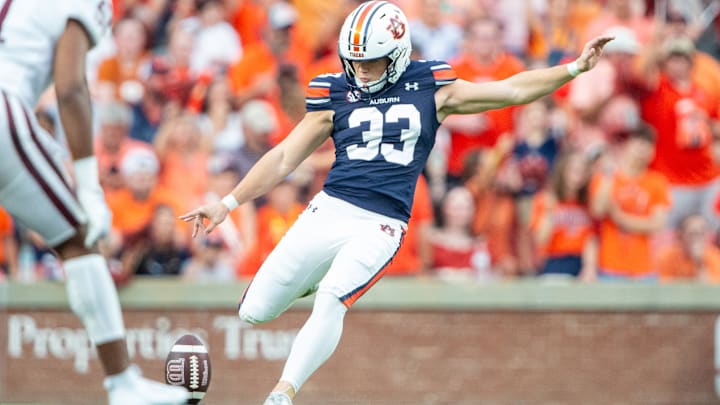The NFL has made a notable change to their kickoffs for the upcoming season, and it is a huge one. Players on the kicking team now line up on the 40-yard line of the receiving team, and cannot move until the returner touches the ball, or it lands elsewhere.
This eliminates the original model where players began running when the ball was kicked and is intended to reduce the risk of injuries on kickoffs. We may also see more kick returns for big yardage, While it may not be as exciting, or as cool for presentation as the original kickoff, any way to reduce injuries is welcome in football.
But can this find its way to the college game? Or will the kickoff remain the same at levels below the NFL? For now, all other levels of football besides the UFL have the "old school" kickoff rule, but there is a good chance the college game will make the adjustment.
1. Safety is crucial
Safety for players is goal number one when it comes to creating new rules that can change the game itself. It is a good sign that the NFL was willing to sacrifice the presentation aspect of such an iconic part of the game for the sake of their athletes.
We just have to wait and see whether or not the data shows this does reduce injuries on kickoffs. However, if there is a clear correlation between the new rule and a reduction in injuries, the college football world will quickly adopt this rule.
2. Better field position = more points
With this new rule, a touchback will be placed on the receiving team's 30-yard line, this will create way better field position for these offenses. We have already seen it lead to some interesting games in the first couple of games in the NFL's schedule, and it will be interesting to see what a full slate looks like.
However, an exciting aspect of why college football has become so appealing to fans is the higher scoring in some conferences. With better field position, the dynamic offenses that we see on Saturdays will have even more opportunities to put up points. When it comes to television ratings, a change to this kickoff could not just be good for safety, but for that aspect as well.
4. More returners make names for themselves
A kickoff return is one of the more exciting plays that can happen in a football game, and with this play gaining a bit more value, players will get more chances at this. Players like Tavon Austin lit the college world on fire with their ability to make plays happen in the return game, and with these new rules, those types of athletes will get more of a spotlight.
Yes, there will be touchbacks aplenty, but big plays will happen when these returns are taken out. And in the college game, you see more returns than you do in the NFL anyway. If this increases the role of kick returners in the NFL by a good margin, the possibilities are endless when it comes to college football
4. While not aesthetically pleasing, practically, it will become appealing
Football purists are definitely against the kickoff rule since we have become so accustomed to the old style of kickoff for our entire lives, and the history of the game. There is now a jarring difference in the NFL when it comes to the first play you see during a game.
But the combination of player safety and excitement is something the NFL found to outweigh the cons of this decision. Fans will get used to it not just at the NFL level, but likely at the college level as well. It may take a few years to make a move like that official, but college football has already followed the NFL with first downs no longer stopping the clock, and the two-minute warning.
With college football already doing so much to look like the NFL, there is no reason to not expect the kickoff will soon come to be the same.
